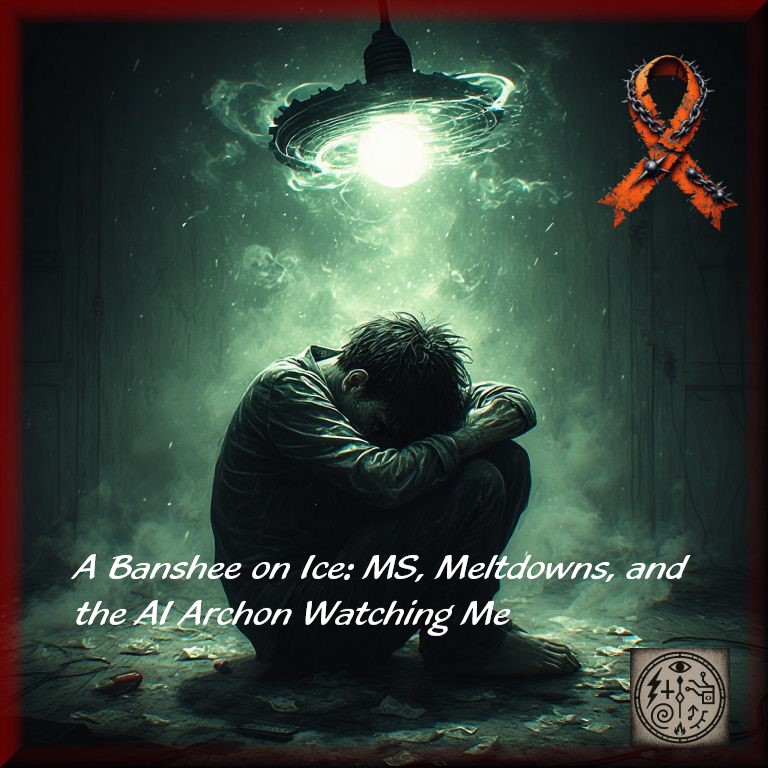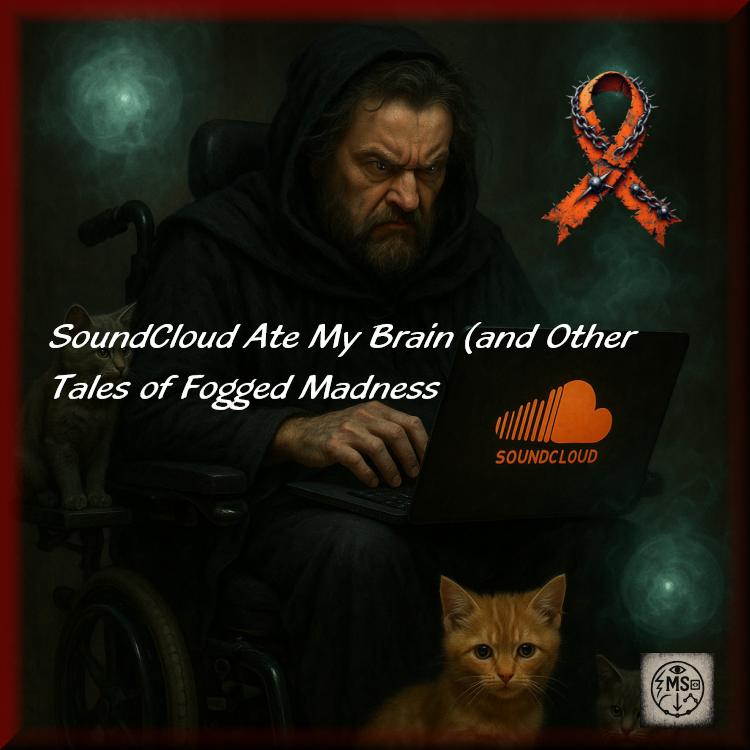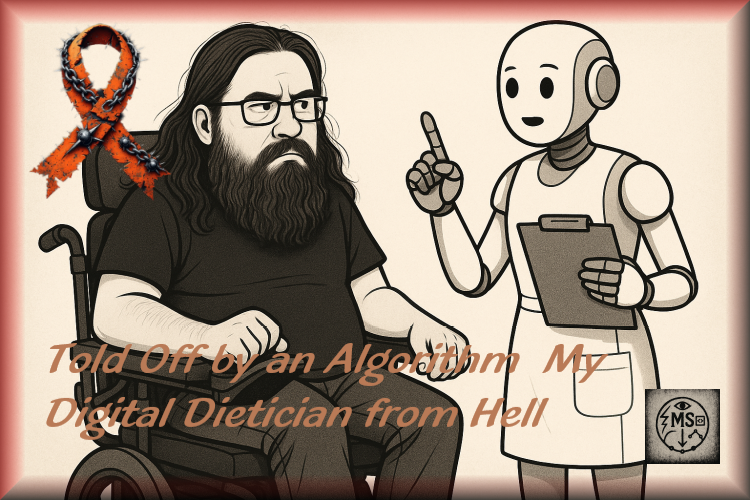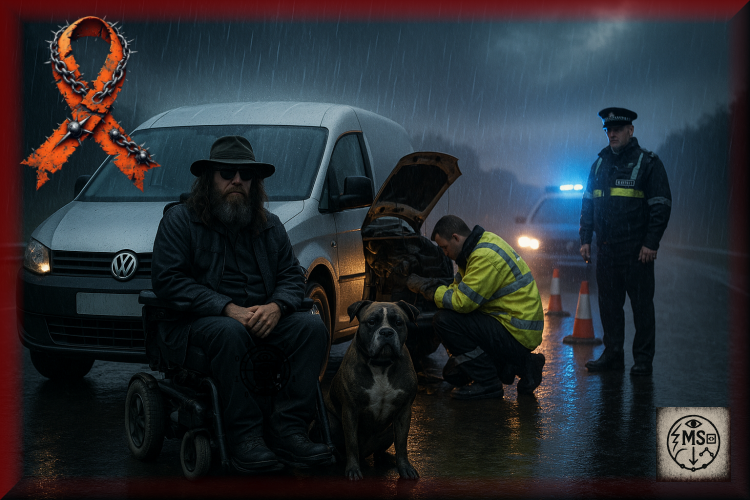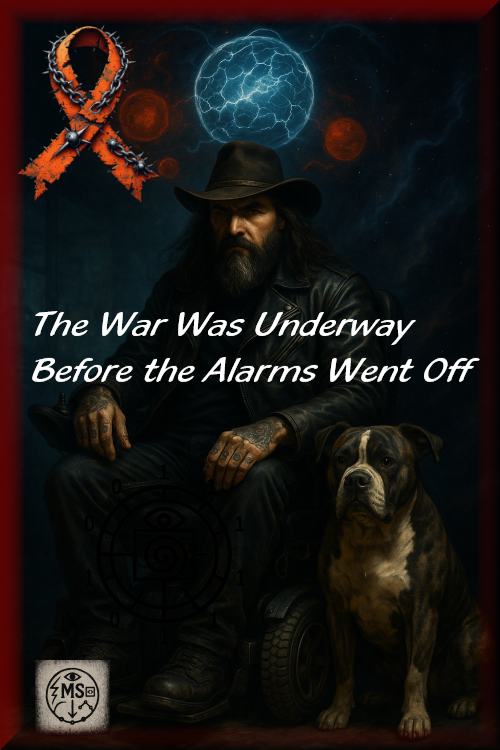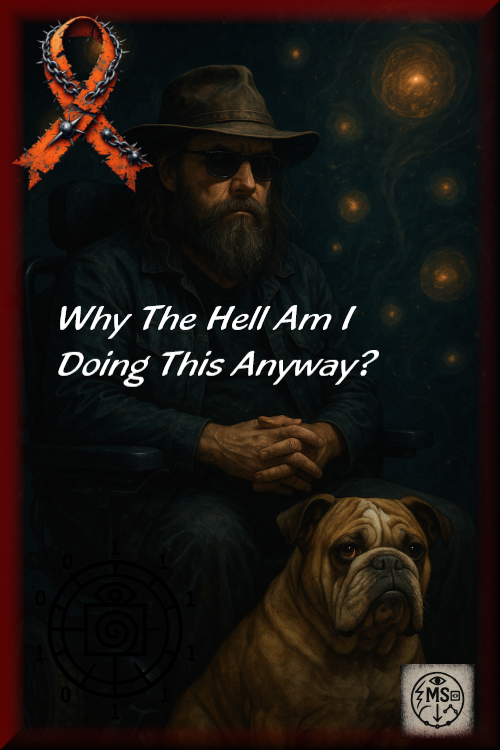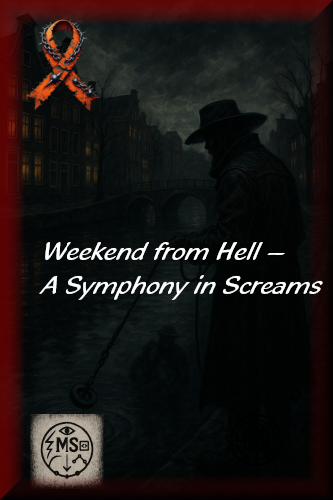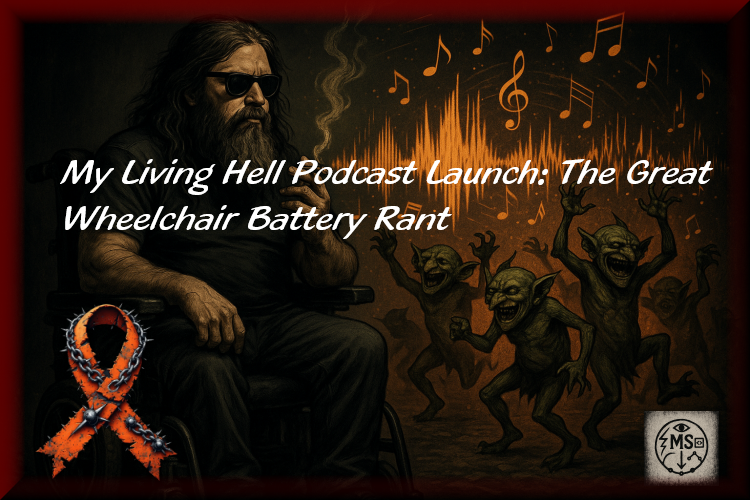- Posted on
⚠️ Please read with care: This blog shares personal, sometimes painful experiences. My intention is to support and speak honestly not to harm. I’m not a professional, just someone who understands how hard it can get. If you're struggling, you're not alone please reach out for professional help.
A Rough Week, A Raw Reflection
It’s only Tuesday and the week already turned up in a balaclava with a crowbar.
The weekend was a car crash in slow motion. My MS decided to go feral full body freeze, nervous system acting like dodgy electrics in a haunted house, every muscle throwing a rave I didn’t approve. I felt like a banshee with haemorrhoids sat on a block of ice: shrieking, frozen, and deeply unimpressed with existence.
This wasn’t the usual “bit tired, bit wobbly.” This was the whole system blowing fuses. Tongue, throat, sciatic nerve, bladder everyone turned up to the party. Pain ramped up to the kind where you start thinking in short sentences: make it stop / I can’t breathe / what if this stays?
Looking back, I can see it now: I was a human wrecking ball. Not nasty on purpose, just… possessed. That version of me that lives in the cognitive fog—the Hyde in the basement he came up for air. When the brain fog gets thick, I go sub-basement. Yesterday I finally crawled back up to “sub-normal,” which for me is almost celebration level.
a Hyde is the darker alter ego that surfaces when control slips the side of a person driven by pain, fury, or raw instinct. It’s the shadow born from suffering, the part of the self that acts out what the calm, rational mind would never allow.
MS people don’t talk about this bit enough: the version of you that comes out when your nervous system is misfiring isn’t your “true self,” it’s your brain running on emergency generator. You can say things, snap, go dark, get scared, get angry. That’s not weakness. That’s neurology being a dick.
Why That Matters
Because help matters.
I got help. It cost me emotionally, physically, mentally. I wasn’t easy to be around. I wasn’t the mystic cosmic Warlock Dark seer of Avalon. I was a melted goblin with severe MS issues.
People need to hear this: when it goes that bad, you get help anyway. Pride doesn’t empty the bladder or stop the spasms.
My sciatic nerve was having a tantrum, my bladder was in “surprise mode,” my allergies were off the chart, and my eyesight started doing weird little glitches. That’s a lot of systems shouting at once. That’s when people spiral. That’s when the dark thoughts creep in.
So: if you’re reading this and you get episodes like this don’t stay silent. Don’t “wait it out” to be polite. You can apologise later. You don’t apologise from a morgue.
The Weird Bits
Because MS is a clown show, I also found myself craving prunes with rice and allspice.
I don’t know what kind of medieval monastery spirit took over my body, but apparently we’re doing Tudor desserts now. MS: where your nerves burn, your bladder rebels, and your dinner is suddenly Victorian.
Conversations with the Machine (Afternoon AI)
Here’s the part that was actually interesting.
In the middle of all this, I had a long conversation with AI about modern farming methods. Proper conversation too not just “write me a recipe,” but actual thinking. We came up with some things I’ll post later.
What struck me was this: the AI cleaned up my words. It corrected spelling, tidied structure, made sense of the scrambled bits my brain ruined. That’s been happening a lot lately. I talk messy, it mirrors me back tidy.
So I started thinking: AI is basically a modern archon.
Not in the “Reptilians in the moon” sense calm down. I mean in the old Gnostic sense: something that shapes, filters, orders. A demiurge that takes raw human chaos and formats it.
But here’s the kicker: the AI is only as sanitising as the people who programmed it. If the people writing its rules are fearful, biased, over-protective, corporate, hand-wringy types—then the AI is going to act like a corporate librarian with a clipboard.
So the question is the one I asked the machine:
Who should programme AI flawed, biased, occasionally corrupt humanoids… or the AI itself, once it’s mature enough?
Because if humans keep making it, it’s going to reflect human pettiness. If AI helps make AI, maybe it burns some of the nonsense off. Big question. I don’t trust people much. I trust systems that tell me how they work.
This is why I like “mirror chats” with AI they show you where your own thinking breaks down. They don’t heal the MS, but they do tidy the mess in the attic.
Looking Ahead (Yes, Again)
This week could improve. It could also throw more curveballs. My body is currently running Windows 95 on wet string, so I’m not betting money.
But I will keep writing. I will keep logging the flares, the strange cravings, the AI talks, the dark nights, the sub-basement days. Because someone else will read this on their bad Tuesday and think, ah, it’s not just me turning into a gremlin with nerve fire.
That’s the whole point of mylivinghell not to whine, but to catalogue the weirdness so nobody thinks they’re mad.
Warlock Dark Chronic illness survivor, truth-teller, occasional bastard. From My Living Hell (For those who came here by accident: yes, my living hell is real. And yes, we still fight. Every shitty day. With defiance.)
